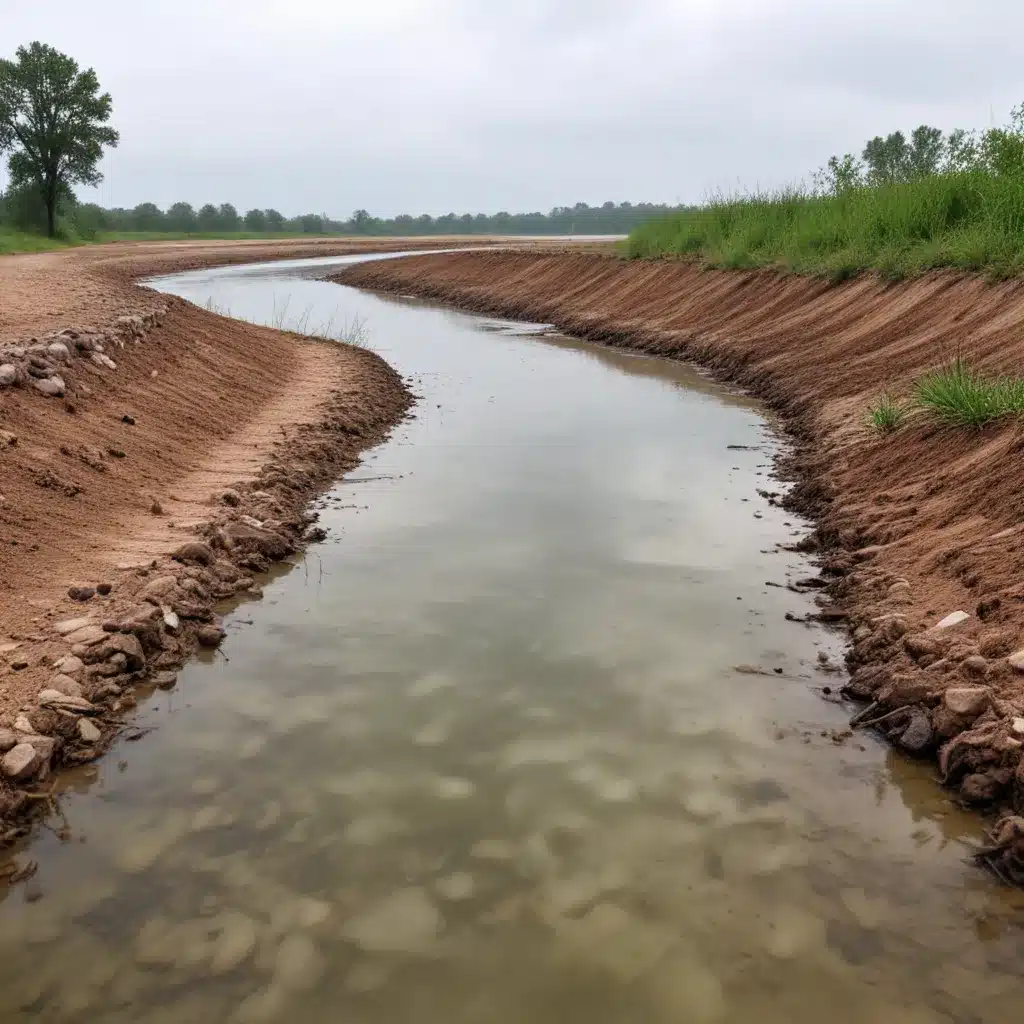
The Crucial Role of Groundwater in a Changing Climate
Groundwater is an essential source of freshwater, accounting for about one-third of the world’s total available water supply. However, this precious resource is being rapidly depleted at an unsustainable rate due to a combination of reduced precipitation, sea saltwater intrusion, and over-exploitation. As climate change intensifies, these threats to groundwater are expected to become even more severe, with far-reaching consequences for communities, agriculture, and ecosystems.
To address this critical challenge, a multifaceted approach that combines groundwater conservation, optimization of water use, and aquifer recharge strategies is crucial. One such innovative solution gaining momentum is Managed Aquifer Recharge (MAR) – the deliberate, controlled infiltration of water into aquifers to restore groundwater balance and enhance water security.
Managed Aquifer Recharge: A Transformative Approach
Managed Aquifer Recharge (MAR) involves withdrawing water during times of plentiful supply, such as rainy periods, and then injecting or infiltrating it into the groundwater system. This enables the water to be stored underground and later extracted for various uses, including drinking water, agriculture, and industrial purposes.
Over the past two centuries, MAR has been successfully implemented in various regions around the world, including Europe, the United States, South Africa, India, China, Australia, and the Middle East. Today, there are over 1,200 documented case studies of MAR projects from more than 50 countries, demonstrating its growing global adoption.
The recharge of aquifers can be achieved through direct injection of surface water into the groundwater system via wells or indirectly by filling recharge basins that allow the water to slowly percolate downwards. The choice between direct injection or indirect infiltration depends on the specific hydrogeological conditions of the site, with indirect methods often better suited for unconfined aquifers and direct injection more suitable for deeper, confined aquifers.
The Benefits of Managed Aquifer Recharge
Managed Aquifer Recharge offers a range of benefits that make it a valuable strategy for adapting to the challenges posed by climate change:
-
Groundwater Balance Restoration: MAR can help restore the natural balance of groundwater systems, replenishing aquifers that have been overexploited or affected by saltwater intrusion.
-
Increased Water Availability: By storing water underground, MAR can increase the overall availability of water resources, with the added advantage of reduced evaporation losses compared to surface storage.
-
Water Quality Improvement: As water percolates through the soil and aquifer, it undergoes natural filtration and purification processes, improving its quality and reducing the need for extensive treatment.
-
Ecosystem Support: Maintaining higher groundwater levels can support important ecosystem functions, such as sustaining wetlands, preventing land subsidence, and mitigating the impacts of salinization.
-
Drought Resilience: During times of water scarcity, the stored groundwater can be extracted and utilized, enhancing a community’s resilience to drought and other climate-related water shortages.
-
Cost-Effectiveness: Compared to alternative water storage methods, MAR often offers a more cost-effective solution, with relatively low infrastructure requirements and operational expenses.
Key Considerations for Successful MAR Implementation
While the potential benefits of Managed Aquifer Recharge are substantial, its successful implementation requires careful planning and consideration of various factors:
-
Hydrogeological Suitability: The presence of a suitable aquifer with adequate infiltration and storage capacity is a fundamental prerequisite for MAR. The site must also have sufficient open land surface area to enable water infiltration.
-
Water Quality Requirements: The quality of the water used for recharge must meet established standards to ensure the safety and integrity of the groundwater system. Monitoring and treatment may be necessary, depending on the water source and local regulations.
-
Stakeholder Engagement: Engaging with key stakeholders, such as farmers, landowners, and water management authorities, is crucial for the effective implementation and long-term sustainability of MAR projects. Their involvement and buy-in are essential for successful groundwater management.
-
Legal and Regulatory Frameworks: Differences in national and regional legislation, as well as a lack of comprehensive legal frameworks specifically addressing MAR, can present challenges. Aligning project plans with existing regulations and seeking regulatory support is crucial for successful implementation.
-
Cost-Benefit Analysis: Determining the costs and benefits of MAR can be complex, as they vary significantly depending on the specific project, local conditions, and the intended uses of the recovered water. Careful analysis is required to ensure the viability and cost-effectiveness of the intervention.
Integrating Managed Aquifer Recharge into Comprehensive Water Management
To maximize the impact of Managed Aquifer Recharge, it should be implemented as part of a broader, integrated approach to water management. This includes:
-
Water Conservation and Efficiency: Prioritizing water conservation and optimizing water use through measures such as demand management, water-efficient technologies, and water reuse can help reduce the pressure on groundwater resources.
-
Nature-Based Solutions: Combining MAR with nature-based solutions, such as the use of forested areas or permeable surfaces to enhance natural infiltration, can further improve groundwater replenishment and support ecosystem functions.
-
Conjunctive Use of Water Resources: Integrating MAR with the use of other water sources, such as surface water, rainwater harvesting, and treated wastewater, can create a more resilient and diversified water supply system.
-
Collaborative Governance: Fostering collaboration among various stakeholders, including water management authorities, community groups, and environmental organizations, is crucial for the effective and equitable governance of groundwater resources.
Conclusion: Embracing Aquifer Recharge for a Water-Secure Future
As the world grapples with the escalating threats posed by climate change, Managed Aquifer Recharge stands out as a transformative solution for safeguarding our precious groundwater resources. By strategically recharging aquifers and implementing comprehensive groundwater management strategies, communities can enhance their resilience, ensure water security, and safeguard the delicate balance of our vital ecosystems.
To learn more about aquifer recharge and groundwater management, please visit the Joint Action for Water website, where you can find resources, case studies, and opportunities to get involved in this critical effort.

